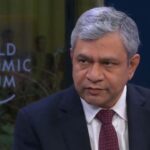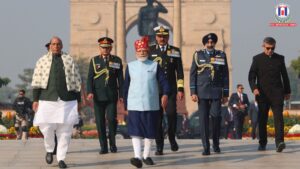
New Delhi , 13 September , 2024: Delhi Chief Minister Arvind Kejriwal has been granted bail by the Supreme Court – which found his “prolonged incarceration amounts to unjust deprivation of liberty – following his arrest by the Central Bureau of Investigation in June, in connection with the alleged liquor excise policy case.
The Aam Aadmi Party leader can now leave jail – after nearly six months without a trial – since he had earlier also secured bail in the case filed by the Enforcement Directorate. He cannot, however go to his office or the Delhi Secretariat, or sign files without Lieutenant Governor VK Saxena’s consent.
In a brief session Friday morning Justice Ujjal Bhuyan and Justice Surya Kant delivered separate verdicts on Mr Kejriwal’s two pleas but agreed on the core issue – the Chief Minister must be released.
Mr Kejriwal had also challenged the CBI’s arrest – which came days after the trial court in Delhi granted him bail in the ED case, and has been criticised by his lawyers as an “insurance arrest”.
On this the judges differed, with Justice Kant stating “no impediment in arresting person already in custody (Mr Kejriwal had been in ED custody for weeks before the CBI’s arrest)”.
Justice Bhuyan disagreed, pointing out the agency, which had been investigating Mr Kejriwal for nearly two years prior, became active “only after trial court granted regular bail in ED case”.
On the matter of bail for Mr Kejriwal, however, the judges were united, noting that “completion of trial (is) unlikely to occur in (the) immediate future”, The court then ruled as it had in three other high-profile bail hearings connected to the liquor policy case – ex-Deputy Chief Minister Manish Sisodia, AAP MP Sanjay Singh, and Telangana politician K Kavitha. All three were released on similar grounds.
And, as it had for Mr Sisodia, the court said it was a “travesty of justice” to keep Mr Kejriwal in custody without notification of a trial, particularly since he had already been granted bail in the case filed by the ED, in which he faced charges under the stringent Prevention of Money Laundering Act.



















No Comments: